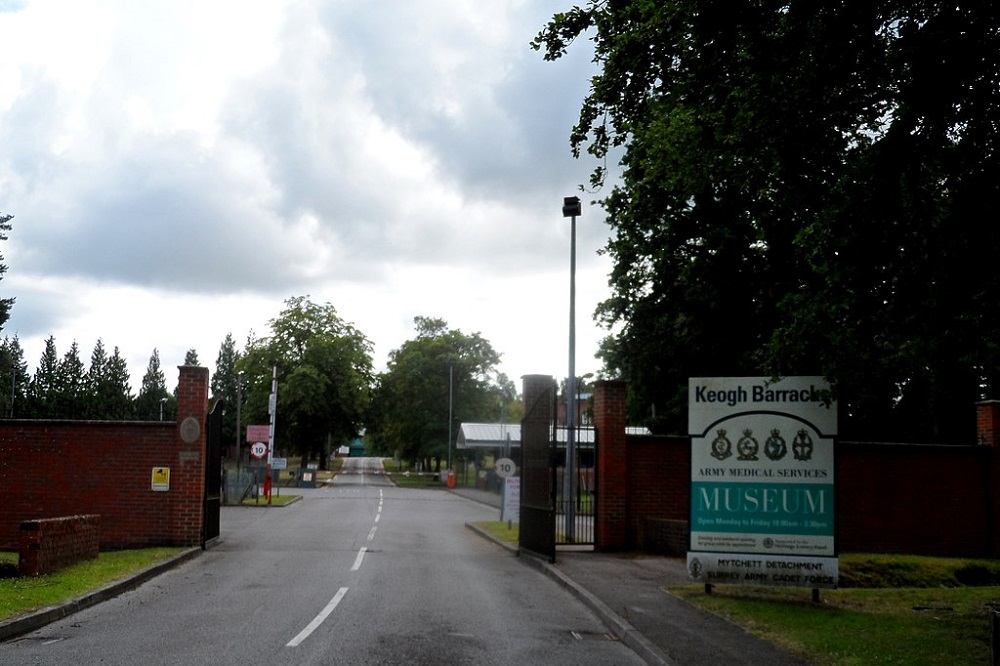Senedd roundup: Latest figures show excess deaths in Wales are lowest in UK

Owen Donovan, Senedd Home
The latest figures released by the Office of National Statistics confirm the number of deaths from coronavirus are continuing to decline across Wales, falling to the lowest weekly total since March and going down for the fifth successive week.
Statistics for the week ending 29th May record there were 105 deaths involving coronavirus (Covid-19) registered in Wales, accounting for 17.9% of all deaths here. There were 134 deaths registered the week before accounting for 19.4% of all deaths.
Overall the number of deaths in Wales from all causes decreased from 692 the previous week to 587.
The weekly total is 41 deaths higher than the five-year average for the week

As COVID-19 was not a cause of death prior to 2020, any deaths involving coronavirus are counted as excess deaths above the five year average.
In comparisons between Wales and English regions the 7.5% of excess deaths in Wales for the latest week is the lowest recorded in the last 10 weeks and the lowest in the UK over the comparable period. The percentage of deaths in Wales above the five-year average the previous week was 12.7.
London is the next lowest with 8.2% above the five year average.
The East of England had the highest percentage of excess deaths at 32.9%, followed by Yorkshire and the Humber at 29.1
The week covered by the latest figures included the late May Bank Holiday which could make the figures lower than a normal week due to potential delays in registering deaths.
National Records of Scotland recorded excess deaths of 11% (108) for the equivalent week, which ran to 31st May. The Northern Irish Statistics and Research Agency record excess deaths for the week up by 37, 13.3% higher than average for the week ending 29th May.
Public Health Wales has confirmed nine more deaths from coronavirus, bringing the total since the outbreak began in March to 1,410.
Forty-two new cases were announced in Wales on Tuesday, bringing the total number of confirmed cases to 14,480. Overall 3,108 tests were carried out in the last 24 hours.

Application process opens for £100 million of business support
Applications have opened for the next phase of financial support from the Welsh Government to help companies impacted by the coronavirus crisis.
The government’s Economic Resilience Fund (ERF) online eligibility checker has reopened today and businesses will be able to make applications for support from this phase of the fund by the end of the month.
The ERF is designed to support businesses, social enterprises and charities, which are not eligible for other Welsh Government and UK Government support schemes.
The next phase of the fund will enable businesses to access a further £100 million of financial support. It is being targeted at microbusinesses, SMEs and large businesses of critical economic importance, which have yet to receive financial assistance from the ERF.
This latest phase will operate in broadly the same way as the first phase but with an update to the eligibility of the micro scheme. This will enable limited companies which are not VAT registered to access the fund, subject to other criteria being met.
Large businesses, which have suffered more than a 60% reduction of turnover since 1 March 2020 may also qualify for funding if they meet other conditions. A further £10 million has been available from the ERF to support larger firms.
To date, almost £200 million of ERF funding has been distributed to companies across Wales, supporting a wide variety of businesses to deal with the impact of coronavirus.

Wales risks “losing a generation of artists” due to coronavirus
Culture Committee
Impact of Covid-19 outbreak on the arts sector (pdf)
“We cannot risk losing a generation of artists or abandoning all of the positive work and investment which has gone into making Wales a world-leader in arts and culture. We are urging the Welsh Government to take swift action to support this important part of Welsh life.”
– Acting Chair, Helen Mary Jones MS (Plaid, Mid & West Wales)
- Freelancers fall through the gaps of the UK Government’s self-employment support scheme
Artists are described in the report as “the ultimate gig economy workers” as many work on commission and their income varies massively, some having several jobs at once.
As many performers can’t provide a track record of accounts, they may not be eligible for UK Government support for the self-employed, particularly if they’ve been working for less than three years.
Deputy Minister for Culture, Tourism & Sport, Dafydd Elis-Thomas (Ind, Dwyfor Meirionnydd), said the issue has been taken up with the UK Government but “We haven’t had as much response as we’d hoped”.
Fortunately, around £7.5 million was made available by the Welsh Government, with £2 million of emergency funding aimed at individual performers.
- Arts organisations are facing substantial financial losses
Nick Capaldi from the Arts Council of Wales said the Council’s portfolio was losing £1.4 million a week, while the Millennium Centre was expected to lose £20 million this financial year. It’s been the organisations least-reliant of public funding which have been the hardest-hit.
Enough emergency funding has been provided to ensure the Arts Council portfolio stays afloat until September 2020, but a full financial recovery may not happen before Easter 2021 depending on how quickly Wales eases lockdown restrictions.
The Committee recommended that guidance on reopening live venues and other related businesses should be published by 1st August 2020 and also recognition that arts organisations may take several years to fully recover and may need extended support.
- There’s a danger arts organisations will fall back to old patterns
Any work done to date on improving diversity and reaching new audiences may be completely undone if arts organisations fall back on established audiences post-recovery instead of trying new things.
There were several calls for the Welsh Government to support innovation, such as online delivery of creating activities, live streaming (which some theatres have been doing during the lockdown) and podcasts.
The Committee’s broad conclusion was that the recovery phase should be seen as an opportunity to rethink how the arts are supported, but there was a risk that a digital-first strategy could lead to people thinking that creative content should be free.
They recommended the Welsh Government “begin conversations with representatives from the arts sector to set a long term policy direction which is sustainable, inclusive and accessible.”

Senedd recommended to approve emergency insolvency law to protect social landlords
The Welsh Government has recommended that the Senedd grants its consent to the UK Parliament’s Corporate Governance & Insolvency Bill (pdf).
Reforms to UK insolvency laws have been in the pipeline for several years, but the law has been brought forward (it’s already cleared the House of Commons) as it’s believed it would help companies facing serious financial problems caused by the coronavirus pandemic.
The Bill will give businesses otherwise facing the prospect of bankruptcy more time (a moratorium) to develop rescue plans, more protection from creditor action and eases requirements for AGMs and company filing.
Concerns
However, there have been concerns that the Bill will allow companies to run roughshod over workers’ rights – such as firing and rehiring on lower pay and changing pension agreements.
While insolvency law is non-devolved, the Senedd has been asked for its permission because Registered Social Landlords (RSLs) – which may be community benefit societies or charitable incorporations – are companies liable to insolvency proceedings.
RSLs operate within Welsh law, with the Welsh Government often being involved in insolvency proceedings involving RSLs. The Welsh Government will be given some powers in the Bill to regulate moratoriums for RSLs.
The Bill isn’t expected to have any major financial impact on the Welsh Government other than the cost of producing new regulations.
MSs are due to debate the Legislative Consent Memorandum tomorrow (10th June 2020).

Criticism at health board’s fifth year in special measures
Both the main opposition parties in the Senedd marked the fifth anniversary of Betsi Cadwaladr Health Board being placed in special measures with fresh criticism of the government’s handling of the troubled organisation.
In June 2015, Betsi Cadwaladr became the first health board in Wales to be placed in special measures after a report found “institutional abuse” at the Tawel Fan mental health ward at Glan Clwyd Hospital in Denbighshire.
Since then there have been issues with the board’s specialist vascular services, a projected £40 million deficit to the end of the 2020/21 financial year, a bungled plan to stop paying nurses for their 30 minute break, and just last month the board was forced to apologise after almost 1,700 mental health patients were wrongly discharged from support services.
Languish
The Welsh Conservatives leader of the Opposition in the Welsh Parliament, Paul Davies MS, said: “No health board should be allowed to languish in special measures for any length of time let alone five years. The Welsh Labour Government has failed to get to grips with the issues in North Wales and last year the Health Minister said he would not set a timetable to get the health board out of special measures. Sadly, another year passes, and the impact of Covid-19 will be significant in future changes needed.”
Mr Davies also pledged that if a Conservative government was elected next year “On the first day as your First Minister I will order a swift but thorough review into Betsi Cadwaladr UHB. Within a month I will then publish a clear and comprehensive roadmap, with a timetable, of what needs to be achieved and by when, to get Betsi out of special measures.”
Rhun ap Iorwerth, Plaid Cymru MS and Shadow Minister for Health said if he was Health Minister following next year’s Senedd elections, he would consider disbanding the board.
“Wherever we are, this pandemic has made us all think more about the kind of health service we need, how it must be properly resourced, and its workforce supported. But here in the north of Wales, it’s also focused minds on whether Betsi Cadwaladr Health Board is fit for purpose, “he said.
“I have no desire to pursue reorganisation for its own sake but I’ve certainly concluded, and more and more people in and around the NHS tell me they agree with me, that there may already be no option now but to splitting up this health board, and start afresh. It’s a step which, as things stand, I would be willing to take if I were to become Health Minister after the election. “

Cardiff councillor accused of mishandling pandemic business grant scheme
A dance studio owner in Cardiff has accused Labour’ Cllr. Ramesh Patel – who works in the office of the First Minister and Kevin Brennan MP – of mishandling Welsh Government business grants relating to the coronavirus pandemic aimed at those businesses which are eligible for small business rate relief.
Cllr. Patel claimed £10,000 in grants as the registered bill payer and landlord of the studio. While this isn’t against the rules, the owner of the studio, Vickie Bennett, argued that the money should’ve been passed on to herself and other tenants.
Cllr. Patel said he intended to use the grant to offer tenants a rent holiday and has threatened to withdraw this offer unless the accusation is also withdrawn.
Following questions from Neil McEvoy MS (Ind, South Wales Central) in the Senedd several weeks ago, the Finance Minister confirmed the grant is awarded to the registered bill payer.
The Federation of Small Businesses told BBC Wales that while Welsh Government guidance states that the grant money doesn’t have to be passed on to tenants, they would hope landlords would “show understanding” towards the needs of small businesses.

Military medicine museum plans spark backlash over absence of BAME history
Plans for a museum of military medicine at Britannia Gardens in Cardiff Bay have prompted a backlash.
Proposals for a museum in Cardiff – which would relocate from Aldershot – have been in place since at least 2017, but the location has changed in the last year to open space near the famous Norwegian Church. It’s been said the £30 million museum could attract 250,000 visitors a year and would include advanced 3D technology for exhibits.
While some of the backlash focused on the loss of open space, in light of the recent Black Lives Matter protests – including a large protest in Cardiff’s Bute Park and other places around Wales at the weekend – criticism also focused on a there being no museum dedicated to the multicultural history of Butetown. The Butetown History & Arts Centre closed in 2016.
Petition
A petition to the Senedd calling for black, Asian and minority ethnic history to be included in the Welsh curriculum has – at time of posting – received more than 30,000 signatures. The matter was discussed as part of a Culture Committee inquiry in 2019.
Leanne Wood MS (Plaid, Rhondda) said: “Cardiff is not a military town, and it just does not make sense to have a museum glorifying warfare there. What it does have is a rich history, but this is rapidly being pushed aside in the seemingly frantic gentrification of the Cardiff Bay area.”
Labour’s Cardiff Council Leader, Cllr. Huw Thomas, said on Twitter: “I can see why people might object to a museum that glorified war, but I’m not sure a museum with displays such as Florence Nightingale’s carriage, dental and vet equipment, and recent deployments to combat Ebola is doing that.” He added that the museum, if given the go-ahead, would be privately financed and won’t receive any council funds.

Welsh Government holds strong line following latest plea from Debenhams for special support
Debenhams has written to the Welsh Government again, demanding that they reconsider a decision to only offer business rate relief to those with a rateable value of under £500,000.
The company has warned that four stores in Newport, Swansea, Cardiff and Llandudno were under threat of closure because of business rates.
The company – which entered administration for the second time in a year in April – is currently negotiating business rate deferrals and rent cuts with landlords as part of a company voluntary agreement.
Debenhams has already confirmed that their Merthyr Tydfil store won’t reopen when the Welsh Government decides to ease lockdown restrictions due to a failure to agree to a deal with landlords.
While saying they would respond to the request “in due course”, the Welsh Government told BBC Wales: “While we know how important Debenhams stores are to our town centres, this is a business facing its third insolvency process in 12 months….Taxpayers are already providing more than £1million in rates relief support to Debenhams across Wales.”

Extra help for disabled MSs and those with care responsibilities
The Independent Remuneration Board has decided that MSs should receive additional financial support relating to disabilities and also funding towards out-of-hours childcare for the Sixth Senedd (pdf).
Financial support for disabled MSs and support staff via the Equality and Access Fund has been increased, while from the start of the next Senedd term in May 2021, MSs will be able to claim up to £297 a month for childcare or dependent adult care provided outside of normal working hours (9 am-6 pm).
MSs salaries will still be linked to changes to gross median full-time earnings in Wales, meaning MS salaries can’t increase by a greater percentage than the full-time workforce. The basic salary of an MS from 2021-22 will be £70,626. Additional top-up payments for ministers and committee chairs are unchanged other than the adjustment to match full-time earnings.
The Board decided that MSs will no longer be able to claim mortgage interest payments for second homes in Cardiff. Any refunds from rental agreements will also need to be repaid to the Senedd Commission, not the member.
Valuation
MSs will also be required to obtain a proper valuation and legal advice before submitting any claims for a new constituency and regional office. Earlier in the term, the former UKIP MS and anti-devolution campaigner, Gareth Bennett MS, was censured for misusing Senedd funds after renting a dilapidated regional office in Pontypridd.
“New provisions are included in the Determination for 2021-26 to provide additional support for those that need it, such as Members with caring responsibilities and those on parental leave.
“Whilst diversity within the membership of the Senedd is ultimately determined by political parties and the electorate, through the candidates nominated and subsequently elected, this Determination aims to ensure no persons feel unable to stand for election to the Senedd.”
– Dame Dawn Primarolo, Chair of the Remuneration Board
The measures are expected to cost an additional £700,000-a-year from May 2021.
Support our Nation today
For the price of a cup of coffee a month you can help us create an independent, not-for-profit, national news service for the people of Wales, by the people of Wales.





